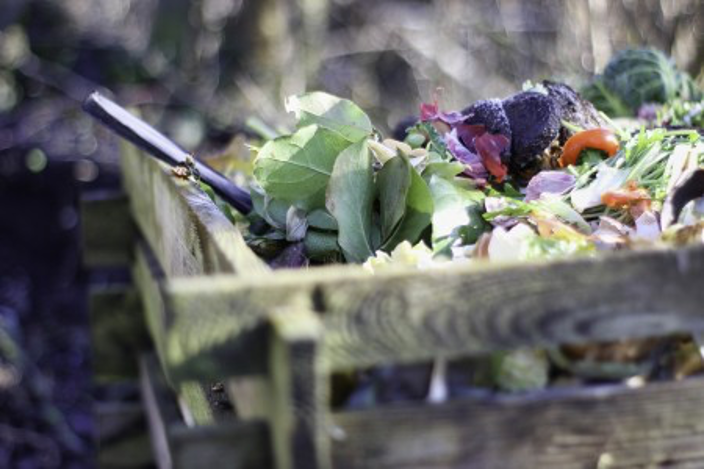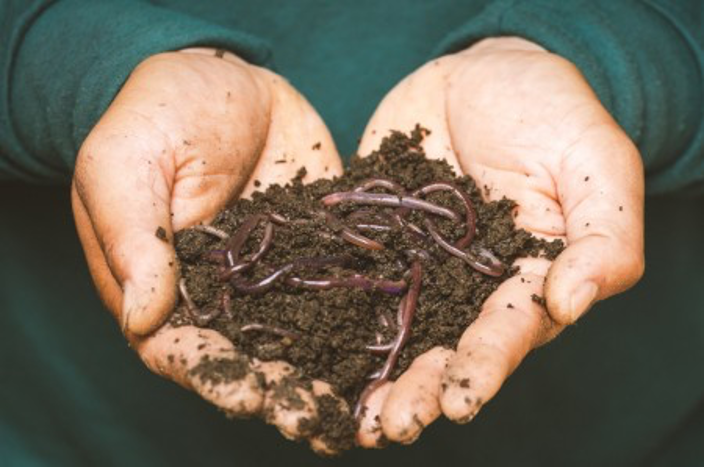

As the effects of climate change are becoming more concerning, people are making lifestyle changes as a means to both help the environment and make the world a safer, cleaner, and better place to live. From reducing the use of plastic straws to using products packaged in recyclable materials, there are several different ways you can make an impact on the environment. One common way that people reduce waste and give back to the environment is through composting.
There are several different ways to compost, but in general, compost is decayed organic material that is used to fertilize plants. For plants and gardening, in particular, composing is incredibly beneficial as the organic material makes each plant stronger and healthier!
When living in an apartment, you may think that your options are limited when it comes to composting, but that couldn’t be farther from the truth! You can compost anywhere in your apartment, with just a couple of ingredients. Are you someone who lives in an apartment and is looking to start composting? Unsure where to start and what you need to do it? Here are five things to know to help you get started!

Image via Pixabay
The Two Types of Indoor Composting
If you are unfamiliar with composting, you may think that there is only one form of doing it, but there are actually several different ways to compost both indoor and outdoor — but let’s stick to inside your apartment. When composting in your apartment, you can consider two different options: aerobic composting and vermicomposting. Aerobic composting basically utilizes what is in the soil to break down. Vermicomposting, on the other hand, relies on earthworms to do that job. You can ultimately decide which method is better for you and your lifestyle, but first, let’s get into all that you’ll need to get your compost started!
Things You Need
Most of us think that composting is as simple as putting any food scraps into a pile and allowing it to break down naturally, which is partially true, but there’s more science to take into consideration. For a healthy, functional, compost, experts and scientists recommend an equal ratio of green and brown material. Green material is high in nitrogen and can consist of items like fruit and vegetable scraps such as banana peels, eggshells, coffee grounds, grass clippings, weeds, and small amounts of food waste like pasta sauce. Brown material is high in carbon and can consist of things like small branches and twigs, straw, old mulch, dried weeds, and more. Additionally, other items that are considered brown material are newspaper, paper bags, paper towels, and coffee filters!
Aerobic Composting
The process of aerobic composting is simple and only involves a few key ingredients: food waste, a bin, water, and patience. Simply get a plastic bin to store your compost materials (or you can get an aerobic composting container), throw in your food scraps into the soil, and watch the magic happen. For a good compost, be sure to cut down your food waste and spray with water to ensure it has a healthy amount of moisture. Lastly, try to balance the water with proper oxygen by turning the compost pile. Doing this helps the pile breathe and gives the bacteria and organisms room to break down and thrive.
Vermicomposting
Though most people aren’t fond of worms, if you are looking to compost, vermicomposting is one of the cleanest and easiest ways to do it. With vermicomposting, all you need is a few key items: worms, a bin, and a blend of green and brown materials. Firstly, it’s important to get the right kind of worms for your composting bin, not the common earthworm you find in your garden. Instead, redworms or red wigglers are the preferred choice for vermicomposting, as they can reproduce quickly.
Secondly, you can get any size bin that is appropriate for your apartment. It can be plastic, but make sure to have several holes on the bottom for proper ventilation. Lastly, worms need bedding to survive and properly function, so fill your bin with both soil and some kind of brown material, such as damp newspaper or brown paper bags to give the worms a good foundation to feed. After that, add your food waste such as fruit and vegetable scraps along with a little bit of moisture and you have a great vermicompost!

Image via Pexels
If you are unfamiliar with composting, you might think that it’s nearly impossible to tackle such a project while living in an apartment, but it’s very simple! All it takes is a little bit of patience and love, along with a few other ingredients like food scraps to make a healthy compost pile!



 Equal Housing Opportunity
Equal Housing Opportunity

